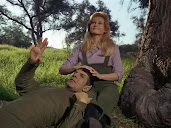As with posts about utopias, I am posting excerpts from my Book of Mormon from the Nineteenth Century Viewpoint blog.
I believe that readers can best understand and appreciate The Book of Mormon by examining it from the perspective of nineteenth-century readers. What questions were they asking? What religious problems concerned them?
1 Nephi 4-6: The Wilderness
It helps to realize that those “fringes”--what was labeled “the West”--kept moving. At one point in the 1800s, “the West” was western New York and Ohio. It then became the Mississippi River Valley and then what we now refer to as the Mid-West. (California became a self-described utopia and sophisticated “other” coast fairly early on—though it was also perceived as part of “the West.”)
The Gold Rush, naturally, contributed to the idea that traveling into the West equaled a new start, but that metaphor impacted North American pioneering as early as the Mayflower (possibly earlier, if one goes back to the Vikings). It links to the Puritan idea of “exodus” from a corrupt society. Methodist preachers--circuit riders--were immensely popular in the nineteenth century while their stable, elite, (well) paid, stationary counterparts on the east coast were perceived as missing the plot.Consequently, nineteenth-century readers would likely have reacted
positively to Lehi’s decision to move his family away from perceived
urban corruption into a potentially dangerous wilderness. And the thread
of violence that inhabits these chapters would have made more sense to
nineteenth-century readers than it often does to modern readers. The
“Wild” West was truly “Wild” in some cases and the attitude “better left
alone to take care of themselves” from state and Federal governments
(pre-Civil War) was prevalent.

However, the wilderness was not embraced because it was nice or cute. Though indigenous people and trackers and traders saw the wilderness as an approachable and useful, many North American newcomers--when faced with so much risk--demonstrated a more medieval than Enlightened mindset, namely:
One goes into the Wilderness and dies heroically (and/or becomes a hermit--see Saint Anthony--and dies sacrificially) or one goes into the Wilderness and fights off all contenders as part of a social order.
The tensions here between wilderness as freedom and wilderness as anarchy personified--wilderness as necessary refuge and wilderness as wholly threatening and dangerous exile--as well as the tensions between individuality and organized leadership, pacifism and violence--continue through The Book of Mormon. Nineteenth-century readers could relate.

















































